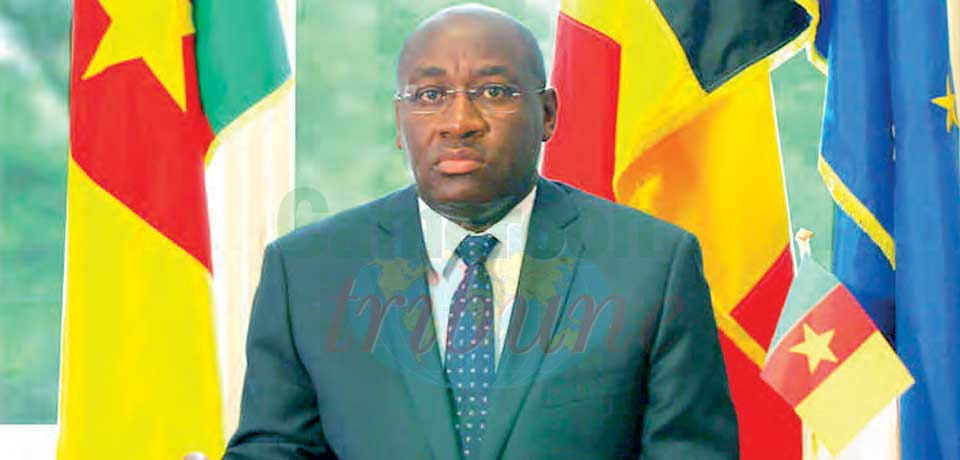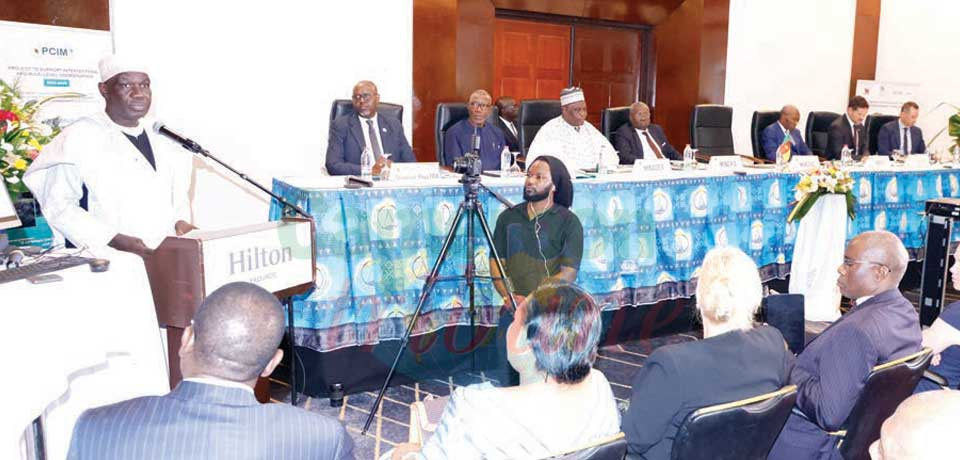"Cameroon Accepts The Agreement’s Obligations And Can Benefit From Its Provisions"
- Par Junior MATOCK
- 19 Jun 2025 12:50
- 0 Likes

Daniel Evina Abe’e, Ambassador Extraordinary and Plenipotentiary of Cameroon to Belgium and the European Union.
Cameroon has just deposited its instruments of ratification for the Samoa Agreement. What it is all about?
Cameroon has officially deposited its instruments of ratification of the Samoa Agreement in Brussels, joining the select group of ACP countries that have formally adhered to this new partnership framework with the European Union. This move reflects a long-standing diplomatic commitment and opens up major prospects for the next twenty years. Signed on November 15, 2023 in Apia, Samoa, and provisionally in force since January 1, 2024, the Samoa Agreement establishes a new legal framework for cooperation between the European Union, its Member States, and the members of the Organisation of African, Caribbean and Pacific States (OACPS). Cameroon has played a leading role from the outset.
As early as 2018, during the adoption of the ACP negotiation mandate in Lomé, Cameroon was actively involved. Its Ambassador in Brussels chaired several technical negotiation teams, ensuring that African countries had a strong voice on key issues such as sustainable development, financing, migration, and governance. The ratification of the Samoa Agreement is the logical outcome of this engagement. Coordinated by the Ministry of Foreign Affairs, this approach mobilized the Ministry of Economy, Planning and Regional Development, the National Assembly as well as the President of the Republic and was concretized in Brussels by the diplomatic mission of Cameroon to the European Union. Indeed, on July 24, 2024, Decree No. 2024/005 authorizing the President of the Republic to ratify this Agreement was published in the Official Journal, making possible the signature by the Head of State, on October 28, 2024, of the Instrument of Ratification itself.
What does the deposit of these instruments of ratification mean and what are the implications?
By depositing its instruments of ratification, Cameroon has completed its domestic approval process for the Agreement. It now becomes a full party to the new ACP-EU strategic partnership. From a legal standpoint, this step means Cameroon accepts the agreement’s obligations and can benefit from its provisions. This includes active participation in the agreement’s implementation bodies; access to funding under the new European cooperation instrument, NDICI-Global Europe; strengthened multilateral collaboration on climate change, peace and security, governance, trade, and youth development.
Cameroon is now the sixth ACP country to ratify the Agreement, after Seychelles, Tonga, Botswana, Mozambique, and Madagascar. On the EU side, five countries have done so: Estonia, Denmark, Slovenia, Austria, and Hungary. The Agreement will only fully enter into force once ratified by the EU, its Member States, and at least two-thirds of OACPS countries, as stipulated in Article 98.2 of the Samoa Agreement. Meanwhile, Cameroon will take part in the transitional implementation mechanisms. At the national and regional levels, the focus will now shift to aligning development strategies with the Agreement’s priorities, reinforcing coordination with EU partners, and ensuring a coherent implementation through political dialogue and concrete projects.
What are the specific features of this agreement ?
The Samoa Agreement marks a significant departure from the Cotonou Agreement it replaces. Negotiations were long and complex, especially around deve...
Cet article complet est réservé aux abonnés
Déjà abonné ? Identifiez-vous >
Accédez en illimité à Cameroon Tribune Digital à partir de 26250 FCFA
Je M'abonne1 minute suffit pour vous abonner à Cameroon Tribune Digital !
- Votre numéro spécial cameroon-tribune en version numérique
- Des encarts
- Des appels d'offres exclusives
- D'avant-première (accès 24h avant la publication)
- Des éditions consultables sur tous supports (smartphone, tablettes, PC)














Commentaires